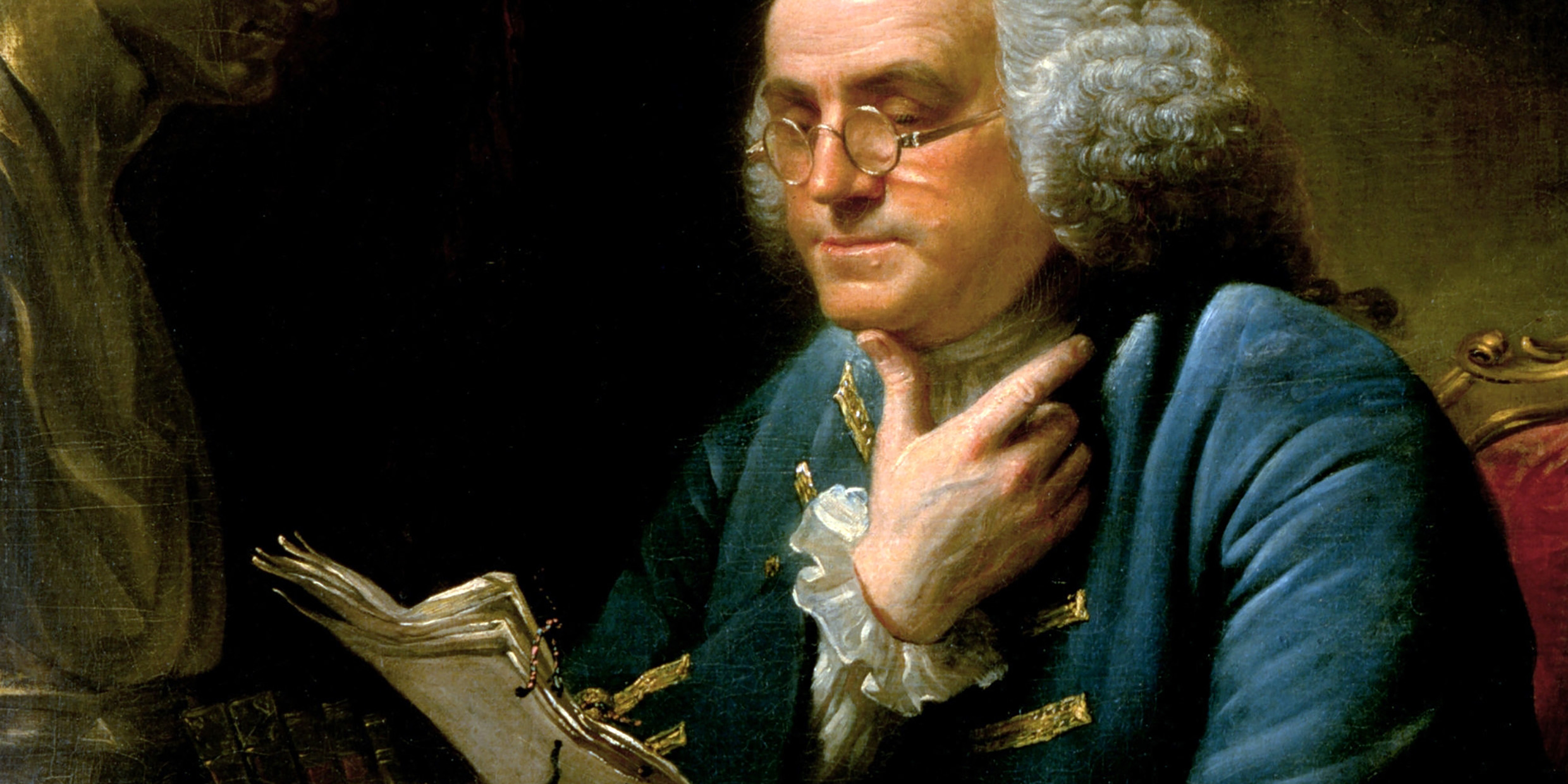Originally published 16 January 1989
Tomorrow [Jan. 17] is the birthday of Benjamin Franklin — patriot, diplomat, printer, journalist, author of Poor Richard’s Almanack, inventor of the Franklin stove and bifocals, internationally-acclaimed scientist.
Of this list of Franklin’s accomplishments only the last will sound unfamiliar. No founder of our country was more richly talented than Franklin, and no one has a more secure place in our pantheon of national heroes. But of Franklin’s reputation as a theoretical and experimental scientist the typical American hears nothing.
Well, almost nothing. We have all heard the story of the thunderstorm, kite, and key, by which Franklin supposedly demonstrated that lightning is a form of electricity. But the episode is remembered only as a kind of quaint anecdote, like Washington chopping down the cherry tree; what is forgotten is the series of brilliantly-conceived experiments by which Franklin helped lay the foundations of electrical science.
When in 1777 Franklin set out for Europe with the purpose of securing support of the continental powers for the new American nation’s conflict with Britain, his reputation as a scientist preceded him. Accounts of his experiments with electricity had been widely disseminated in Britain and on the continent. He had been elected an honorary member of London’s Royal Society and he was one of eight foreign members of the Royal Academy of Paris, the two most prestigious scientific organizations in the world. The Royal Academy had already published three French editions of his scientific writings, and other presses had issued translations in Italian and German. Franklin’s preeminent stature as a scientist helped ensure his diplomatic success on the part of the infant republic.
Kite in a storm
Franklin’s contribution to the new science of electricity was far more substantial than flying a kite in a thunderstorm (if the episode happened at all it is a wonder that Franklin wasn’t killed). The most significant result of his experiments was the establishment of the law of conservation of electric charge, which remains a cornerstone of physics. Many terms still used in electrical science — plus and minus, positive and negative, battery, conductor, and so on — originated with Franklin.
Franklin’s book, Experiments and Observations on Electricity, is one of the most influential works to emerge from 18th century America, perhaps equaled only by Jefferson’s Declaration of Independence and Paine’s Common Sense. Electricity was not Franklin’s only scientific interest. The range of his experiments and observations is astonishing: lighter-than-air balloons, clouds, storms, ocean currents, tides and rivers, sunspots, whirlwinds, fossils, lead-poisoning, daylight-saving time, and the common cold are all considered among his voluminous correspondence.
The historian Carl Becker says this of Franklin: “[Science was the] one activity from which he never wished to retire, to which he would willingly have devoted his life, to which he always gladly turned in every odd day or hour of leisure, even in the midst of the exacting duties and heavy responsibilities of his public career. Science was the one mistress to whom he gave himself without reserve.”
Ignored at home
Then why have Americans so ignored Franklin as scientist? Ten editions in four languages of Experiments and Observations on Electricity were issued by European presses before the American Revolution, but no American edition of Franklin’s book appeared until the middle of the 20th century.
Harvard historian I. Bernard Cohen contends that our neglect of Franklin as a scientist is based in the values that American society placed on scientific research, at least during the first century and a quarter of our history. The young nation produced many useful inventions, including the reaper, the cotton gin, manufacture by interchangeable parts, and the telephone and the telegraph, but only a single theoretical scientist of the stature of a Faraday, Maxwell, Darwin or Pasteur. It is significant that few Americans have even heard of the person whose contributions to nineteenth-century science put him in the highest rank of genius — mathematician-physicist Willard Gibbs.
Americans are a practical people. Inventors Eli Whitney, Robert Fulton, Thomas Edison, and Alexander Graham Bell are known to every schoolchild, but Willard Gibbs languishes in obscurity. We admire the Franklin who invented the stove, bifocals, the lightning rod, a stool that opened up into a ladder, and a rocking chair that fanned the sitter as he rocks, but we have taken but slight interest in the Franklin who debated with the most brilliant natural philosophers of his time about whether there is one electrical fluid or two, and whether electrical force acts at a distance or through the agency of an electrical effluvia.
American scientists served a long apprenticeship to Europe. The influence of Franklin and Gibbs was felt in American science only after passing through the European tradition. Cohen writes: “Looking backward to the roots of their own scientific tradition, American scientists have seen only their immediate European masters. They have never found a direct chain leading back to the colonial period in America.”
Early America was not without native-born scientists of stature. Benjamin Franklin was chief among them, but others are John and William Bartram, Nathaniel Bowditch, Amos Eaton, John Winthrop, and David Rittenhouse — certainly not a complete list, but one that demonstrates by its unfamiliarity the obscurity into which the pioneers of American science have fallen.



